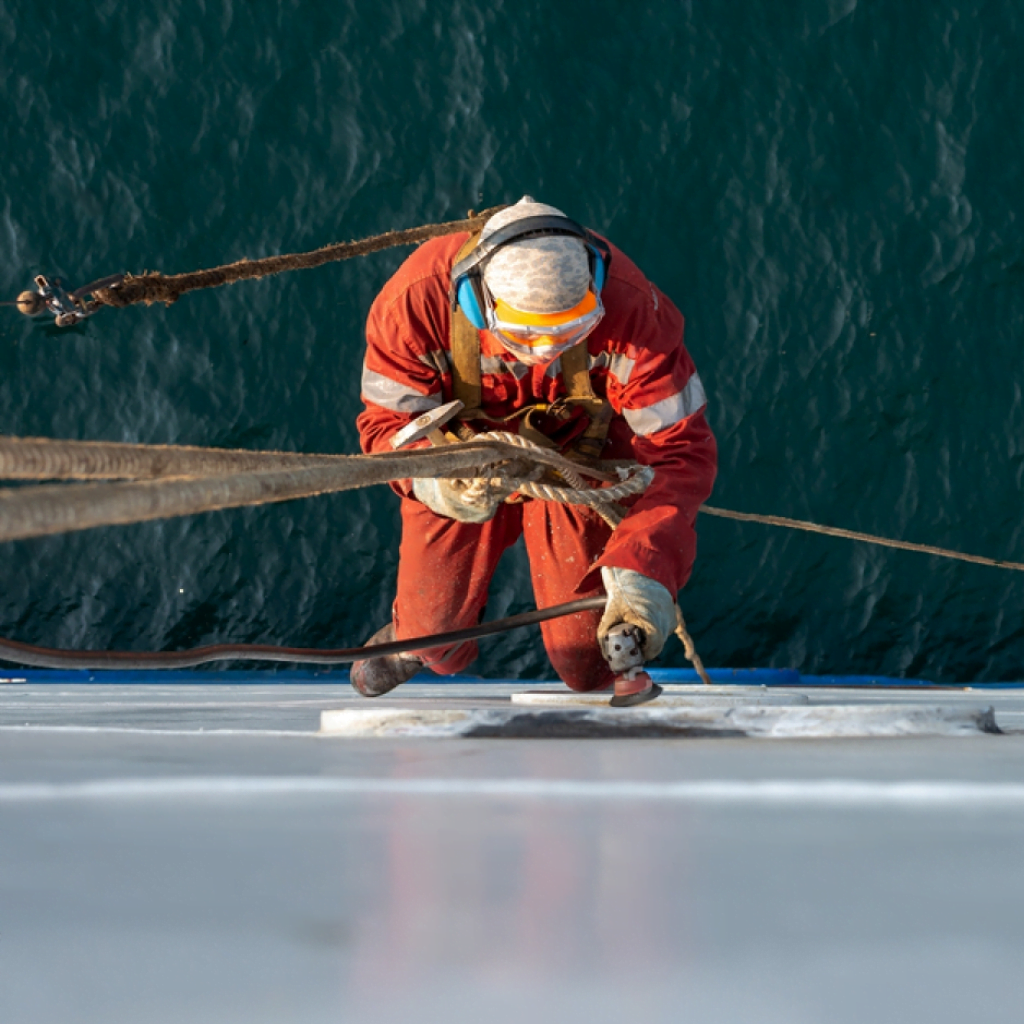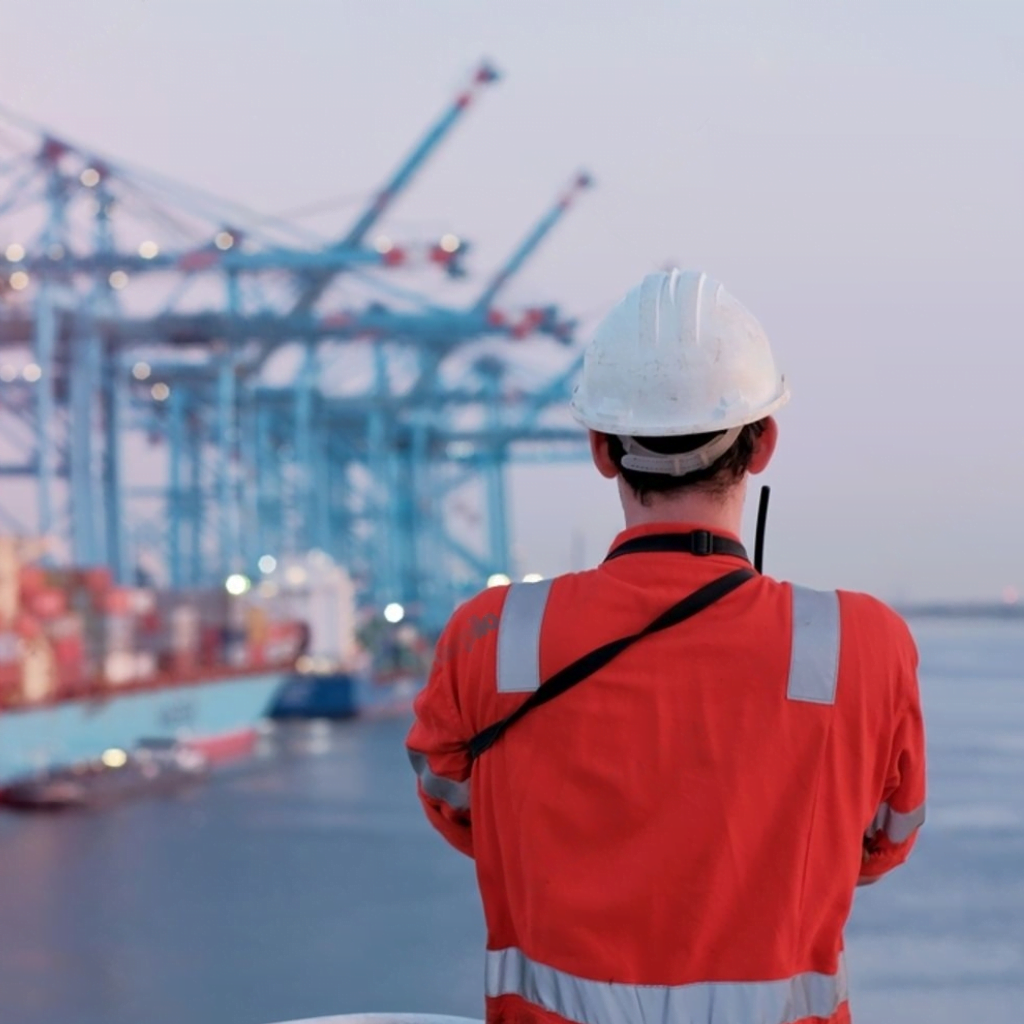Operational Duties
Home / DAY IN THE LIFE / Operational Duties
Merchant Navy Operational Duties: Navigating the High Seas
While combat systems and aviation operations are specific to military vessels, merchant navy operational duties encompass a vast array of responsibilities that ensure the safe, efficient, and lawful passage of cargo ships, tankers, and cruise liners across the world’s oceans. These duties can be broadly categorized into three main areas: Deck Operations, Cargo Operations, and Bridge Operations.
Deck Operations: The Backbone of Onboard Functionality
The deck department is responsible for the overall physical operation of the ship, from maintaining its external condition to handling cargo and ensuring passenger safety (on passenger ships). Here’s a breakdown of their key duties:
Deck Maintenance:
This includes cleaning, painting, and general upkeep of the ship’s exterior. Deck officers and ratings also perform regular inspections of hatches, lifeboats, davits (lifeboat lowering mechanisms), mooring winches, and other deck equipment to ensure everything is in proper working order.
Cargo Operations:
Loading, securing, and discharging cargo is a crucial aspect of deck operations. Officers plan the loading sequence for optimal weight distribution and stability, while ratings oversee the safe operation of cranes, winches, and cargo lashing (securing) procedures. They also ensure compliance with international regulations regarding cargo handling and safety.
Anchoring and Mooring:
Safely securing the ship at anchor or alongside a pier is another key responsibility. Deck officers and ratings handle the deployment and retrieval of anchors, mooring lines, and fenders (protective bumpers) to ensure the ship remains securely positioned.
Passenger Safety (on cruise ships):
For passenger vessels, ensuring passenger safety is paramount. Deck officers and ratings conduct safety briefings, oversee emergency drills, and manage passenger disembarkation and embarkation procedures. They also provide assistance and ensure adherence to safety regulations throughout the voyage.


Cargo Operations: The Engine of Maritime Trade
The efficient handling of cargo is the lifeblood of the merchant navy. Cargo officers and ratings play a vital role in this process:
Cargo Planning and Stowage:
Cargo officers meticulously plan the stowage of cargo within the ship’s holds (storage compartments) to ensure optimal weight distribution and stability. They also consider factors like ventilation requirements for perishable goods and segregation of incompatible cargo types.
Cargo Documentation:
Maintaining accurate and detailed cargo documentation is crucial. Cargo officers prepare bills of lading (documents outlining cargo details), tally cargo during loading and discharging, and ensure all necessary paperwork complies with international maritime regulations.
Cargo Care and Maintenance:
Certain cargo types might require special attention during the voyage. Cargo officers and ratings monitor temperature and humidity conditions in refrigerated holds for perishable goods and ensure proper ventilation for dry cargo. They might also be involved in pest control measures to prevent damage to cargo.
Bridge Operations: Navigating the Seas with Precision
The bridge is the command center of a merchant navy vessel. Here’s a glimpse into the critical duties performed by bridge officers:
Navigation:
Using a combination of traditional navigational skills like sextant navigation and modern technology like GPS and electronic charts, bridge officers plot the course of the ship, ensuring safe passage while avoiding hazards. They continuously monitor weather conditions and adjust course if necessary.
Watchkeeping:
Bridge officers maintain a constant watch, monitoring the ship’s position, speed, and any potential dangers using radars, Automatic Identification Systems (AIS – identifies other vessels in the vicinity), and other navigational tools. They also communicate with other vessels and shore authorities to maintain safe passage and avoid collisions.
Communication:
Bridge officers maintain radio communication with other vessels, shore stations, and maritime authorities. They exchange vital information regarding positions, weather updates, and any navigational concerns.
Emergency Response:
In case of emergencies, bridge officers take charge of coordinating a safe and effective response. They assess the situation, initiate appropriate actions, and communicate with relevant authorities and shore-based support teams.


Beyond the Essentials: The Traits and Skills for Success
The bridge is the command center of a merchant navy vessel. Here’s a glimpse into the critical duties performed by bridge officers:
Navigation:
Using a combination of traditional navigational skills like sextant navigation and modern technology like GPS and electronic charts, bridge officers plot the course of the ship, ensuring safe passage while avoiding hazards. They continuously monitor weather conditions and adjust course if necessary.
Watchkeeping:
Bridge officers maintain a constant watch, monitoring the ship’s position, speed, and any potential dangers using radars, Automatic Identification Systems (AIS – identifies other vessels in the vicinity), and other navigational tools. They also communicate with other vessels and shore authorities to maintain safe passage and avoid collisions.
Communication:
Bridge officers maintain radio communication with other vessels, shore stations, and maritime authorities. They exchange vital information regarding positions, weather updates, and any navigational concerns.
Emergency Response:
In case of emergencies, bridge officers take charge of coordinating a safe and effective response. They assess the situation, initiate appropriate actions, and communicate with relevant authorities and shore-based support teams.
The Future of Operational Duties: Embracing Technology and Sustainability
The maritime industry is on the cusp of significant technological advancements. Here’s a glimpse into some trends that will likely shape the future of merchant navy operational duties:
Automation and Advanced Navigation Systems:
Increased automation will streamline some tasks, allowing bridge officers to focus on critical decision-making and strategic planning. Advanced navigation systems will provide even greater precision and real-time data for safer and more efficient voyages.
Focus on Environmental Sustainability:
As environmental concerns gain prominence, operational practices will shift towards greater sustainability. This might involve using cleaner fuels, optimizing vessel performance to reduce emissions, and adopting waste management practices that minimize the ship’s environmental footprint.
Data Analytics and Predictive Maintenance:
Data analysis is playing a bigger role in monitoring equipment health and predicting potential problems. This allows for more proactive maintenance, reducing the risk of breakdowns and ensuring smooth operations.
Working in merchant navy operational duties is not just a job; it’s a calling for those who thrive in dynamic environments and possess a sense of adventure. It’s a career path that offers opportunities for professional growth, travel to diverse locations, and the satisfaction of contributing to the global flow of trade.
If you have the technical aptitude, a passion for the sea, and the commitment to teamwork and safety, then a career in merchant navy operations might be the perfect fit for you. With dedication, training, and the right skills, you can become a vital part of the complex network that keeps the world’s maritime industry moving forward.

